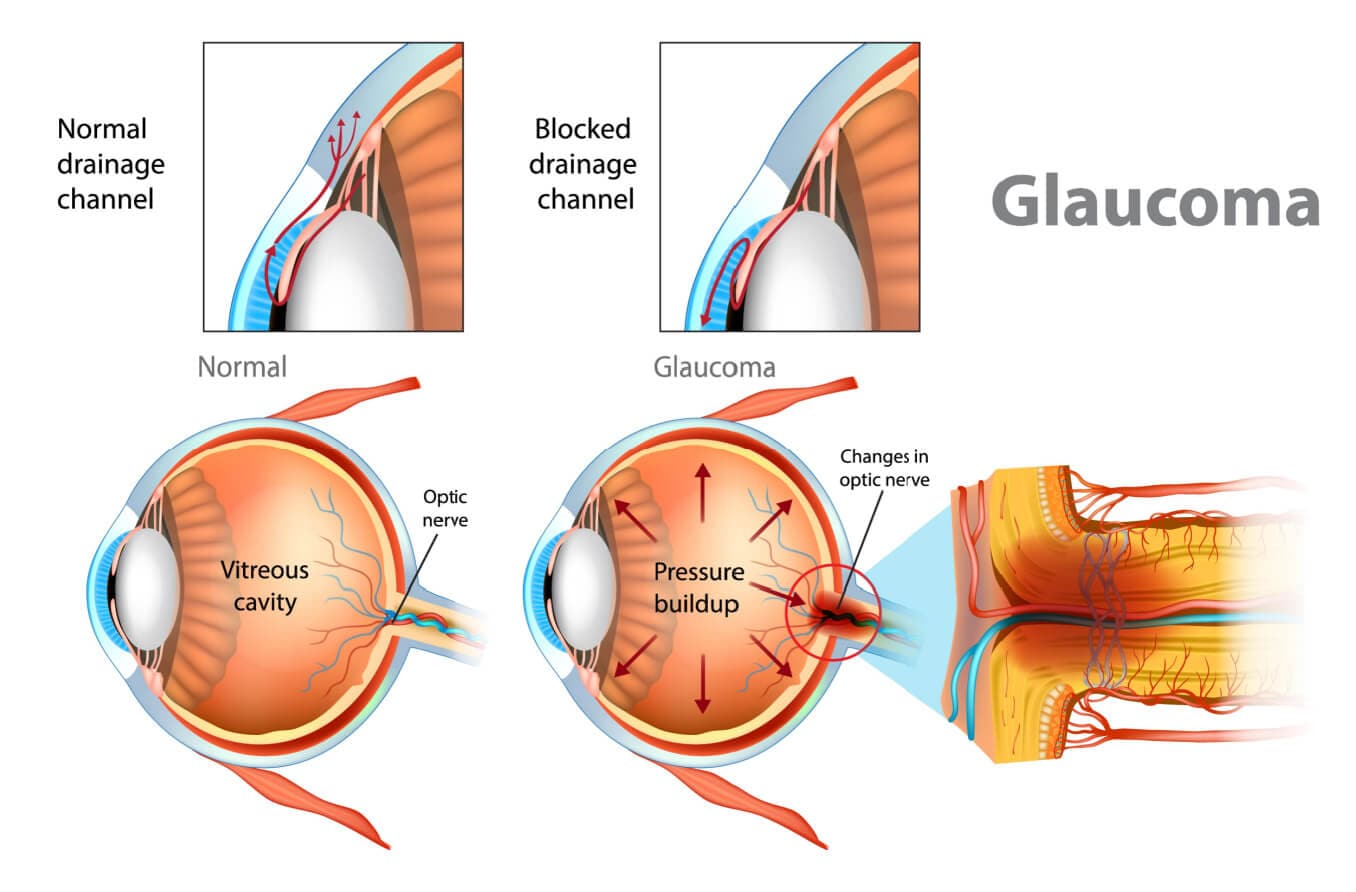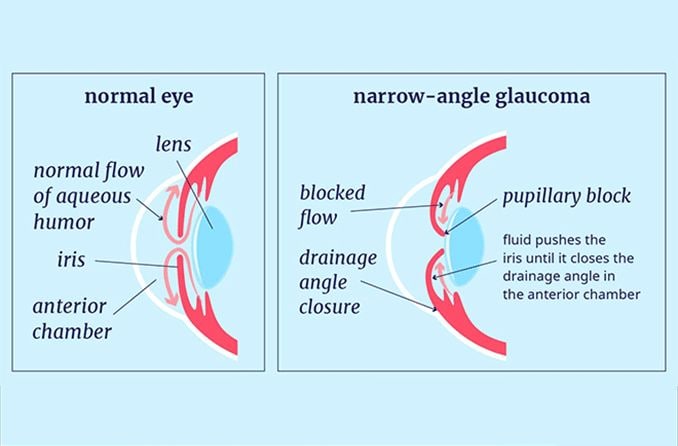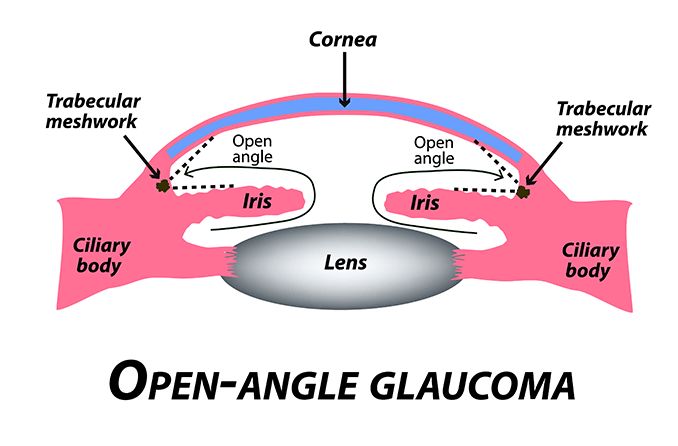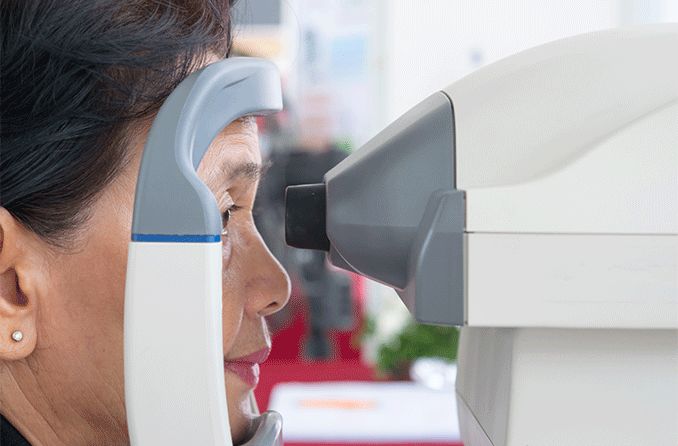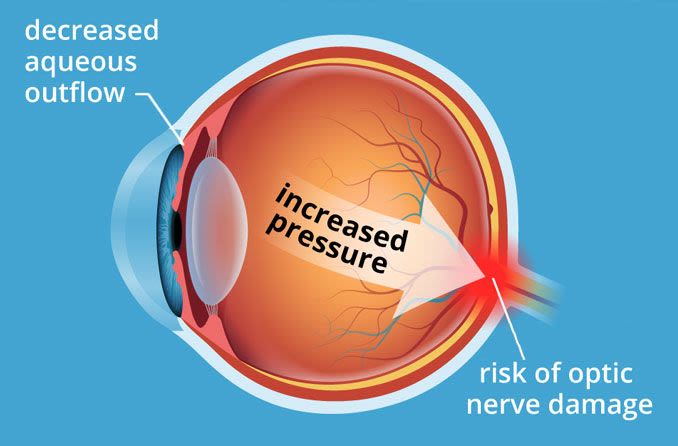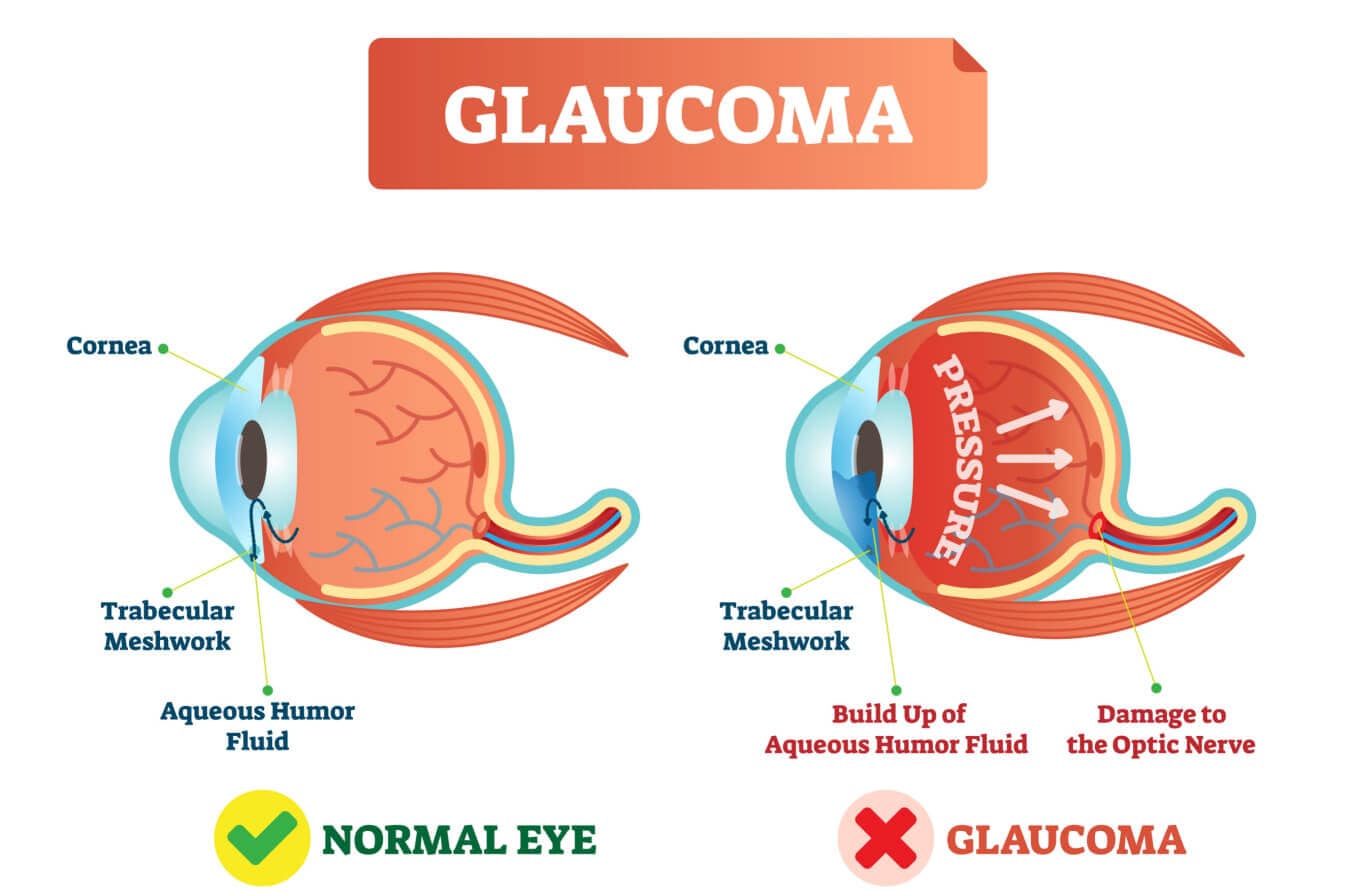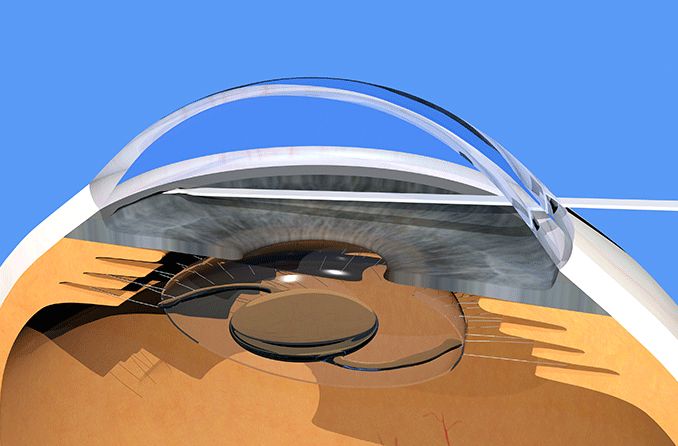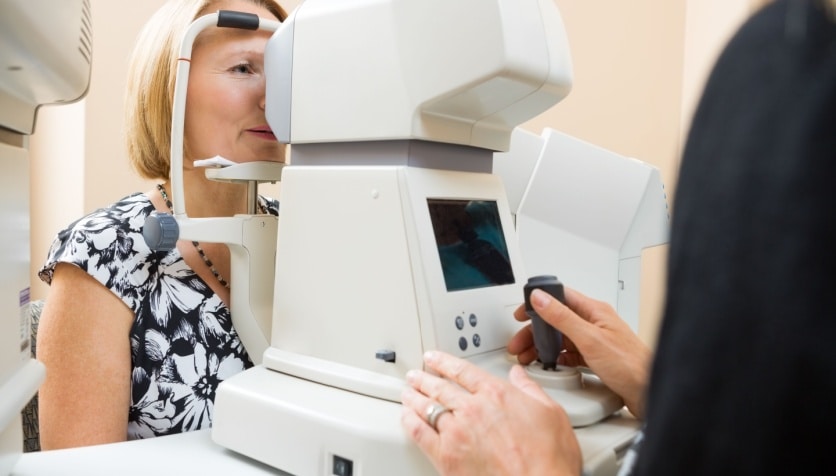Some disorders that affect the eyes can cause headaches. If you have glaucoma (or you are concerned you might have it), it’s natural to wonder if that could be the reason for your pain. Everyday headaches can also make their presence known as a headache behind the eyes.
So, does glaucoma cause headaches? And, if so, which types of glaucoma cause headache pain?
The most common form of glaucoma (open-angle glaucoma) progresses “silently,” without any noticeable symptoms like headaches or eye pain.
However, there are certain sudden-onset forms of the disease that can cause headaches ranging from dull and throbbing to sharp and debilitating. While these are uncommon in comparison to open-angle glaucoma, they can occur with little or no warning, even with otherwise healthy eyes.
Let’s learn more about glaucoma-related headaches and which types of glaucoma cause them.
Headaches and open-angle glaucoma
Also called primary open-angle glaucoma or POAG, this is what most people think of when they think of the disease. Nine out of every 10 glaucoma patients have this type.
POAG will not cause a headache — not even a mild one.
This disorder doesn’t typically cause recognizable symptoms until partial vision loss has already occurred. Early diagnosis with eye pressure tests, followed by doctor-prescribed glaucoma treatment, is the best way to prevent irreversible damage.
POAG's progression can be stopped or greatly slowed with glaucoma eye drops, oral medications, or glaucoma surgery.
Headaches and glaucoma suspects or ocular hypertension
Glaucoma suspect is the term used to describe someone who may not actually have glaucoma, but has one or more clinical signs that put them at higher risk for the disease.
In most cases, glaucoma suspects have elevated intraocular pressure (IOP). This condition is called ocular hypertension.
However, neither glaucoma suspects nor patients with ocular hypertension should experience headaches caused by eye pressure.
Headaches and normal-tension glaucoma
Rarely, glaucoma can occur even in an eye with normal IOP. This is called normal-tension glaucoma.
Like open-angle glaucoma, normal-tension glaucoma will not cause headaches.
The only way to detect normal-tension glaucoma is to have regular comprehensive eye exams by an optometrist or ophthalmologist. During the exam, your eye doctor will examine your optic nerve, which is visible inside your eyes, to rule out this and all other types of glaucoma.
Headaches and narrow-angle glaucoma
These forms of the disease come on quickly and need to be treated as quickly as possible to avoid any vision loss. There is often no warning or previous illness, and glaucoma headaches in these cases are common.
Narrow-angle glaucoma is one of these emergencies as it causes eye pressure to rapidly increase. It goes by a few different names, including angle-closure glaucoma or acute glaucoma.
Narrow-angle glaucoma can cause severe headaches, which may or may not be accompanied by pain in the forehead or eyes. The condition can also cause eye redness, changes in vision, seeing colored “halos” around lights, sensitivity to light, nausea, and vomiting.
Headaches and secondary glaucoma
Neovascular glaucoma is a type of secondary glaucoma where abnormal blood vessels grow in the drainage angle of the eye that is responsible for the normal outflow of fluid from the interior of the eye. When this drainage channel becomes clogged, eye pressure can rise quickly and cause headaches, like in narrow-angle glaucoma.
The most common underlying cause of neovascular glaucoma is severe diabetic eye disease, which also causes diabetic retinopathy.
Headaches and glaucoma medication
Though the most common type of glaucoma does not cause headaches, it’s possible to experience headaches as a side effect of some glaucoma medications. If you start having headaches after starting glaucoma medication or having your medication adjusted or changed, consult your eye doctor immediately.
Glaucoma headaches vs. migraine
The severe pain caused by acute angle-closure glaucoma or neovascular glaucoma can sometimes mimic the pain of a migraine headache, where the pain often is severe and localized behind one eye.
If you experience a sudden, unusual and intense headache (especially if accompanied by nausea) seek immediate medical attention to determine its cause. Your eyesight could depend on it.
READ NEXT: How to get rid of a headache

